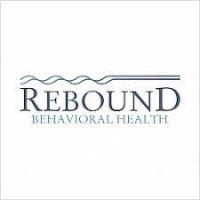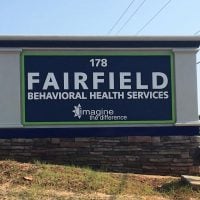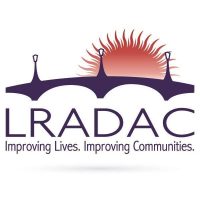Rebound Behavioral Health Hospital
Drug Rehab Center in Lancaster, South Carolina
Rebound Behavioral Health Hospital is an accredited residential treatment center in Lancaster, South Carolina, providing evidence-based treatment for individuals with drug and alcohol addiction and co-occurring mental health disorders using a variety of treatment methods.
About Rebound Behavioral Health Hospital in South Carolina
Rebound Behavioral Health Hospital is a comprehensive and accredited residential treatment center in Lancaster, South Carolina, dedicated to providing evidence-based treatment for individuals with drug and alcohol addiction and co-occurring mental health disorders. This state-of-the-art facility offers a continuum of care for those struggling with addiction, with programs that address all levels of care. The hospital utilizes evidence-based treatments such as creative arts therapy, experiential therapy, family therapy, internal family systems, psychoanalysis, medication-assisted treatment, group and individual therapy, and more. Clients are supported in their recovery journey through the use of cognitive behavioral and dialectical behavior therapy, recreational therapy, and nicotine replacement therapy. Rebound Behavioral Health Hospital is accredited by the Joint Commission on Accreditation of Healthcare Organizations (JCAHO), the National Association of Addiction Treatment Providers (NAATP), and the Substance Abuse and Mental Health Services Administration (SAMHSA) and accepts private health insurance.
Rebound Behavioral Health Hospital strives to provide quality and compassionate care in a safe and welcoming environment. Their experienced and multi-disciplinary team of addiction experts provides personalized, evidence-based, and holistic treatment in the form of individual, family, and group therapy, experiential modalities, and medication-assisted treatment. With the implementation of a variety of highly effective treatment methods, the hospital guides clients on their journey to long-term recovery and sobriety.
Genders
Ages
Modality
Additional
Accreditations
SAMHSA
NAATP

JCAHO
Conditions and Issues Treated
Substance Abuse Treatment is important when getting sober, as it helps addicts learn the skills they need to live a clean life. There are many different kinds of recovery treatment, including but not limited to medication-assisted therapy, behavioral therapeutic approaches, self-help groups, and counseling. Each treatment has its benefits that help addicts recover.
Counseling can help addicts learn the skills they need to live sober lives. It can be used to treat underlying mental health issues, like depression or anxiety, that could lead to relapse. Counseling can also help people find work, deal with family problems, and learn to manage living without drugs.
With so many people addicted to opioids, we need to help those who want to quit. The cycle begins when opioid addicts take opioids for a painful injury. When someone starts taking their medication differently or in excess, it means they’re addicted and at risk of overdosing.
In , detoxing from these types of treatments is the most effective way to beat this. Most facilities begin with medical assistance and then provide counseling services; rehabilitation follows after successful treatment.
Dual diagnosis refers to someone who has both an addiction and a mental or emotional illness. Dual diagnosis treatment includes therapy for both issues simultaneously, allowing for effective treatment of either.
Sometimes people with addiction disorders also have co-occurring disorders like depression, anxiety, bipolar disorder, etc. These require specialized treatment programs that address both drug and alcohol addiction as well as psychiatric illnesses. Some rehabilitation facilities provide patients with co-occurring disorders a program with highly integrated services and a clean, distraction-free environment.
Levels of Care Offered
This center offers a variety of custom treatment tailored to individual recovery. Currently available are Detox, Dual-Diagnosis, Inpatient, Intensive Outpatient, Partial-Hospitalization, Residential, with additional therapies available as listed below.
Detox is an integral part of recovery and often very hard. Detoxification is the process of letting the body remove the drugs in it. It addresses the physical aspect of addiction. Detox from drugs can be unsafe as the patient undergoes withdrawal symptoms that range from headaches, vomiting, body aches to seizures and cardiac arrests. The main purpose of detox is to keep the drug users comfortable as the drugs leave their system.
Quitting cold turkey is not recommended and can lead to many issues. Detox is best done under medical supervision so that a team of experts can monitor the side effects and complications. Detox, alone, does not guarantee sobriety as the underlying psychological issues are not addressed.
Inpatient treatment is a form of recovery used in drug rehab. Inpatient recovery offers individual therapy, groups, and family therapy to ensure that the addict has the best recovery possible. A variety of treatments are provided in this type of recovery, depending on what treatment the addict needs at that particular time.
The length of inpatient addiction treatment depends on the addict and their addiction. Inpatient rehabilitation can last anywhere from 30 days to 90 days, depending on how severe the drug abuse is. Inpatient rehab is a costly drug treatment, costing anywhere from $30k- to $60k. However, insurance often offers help in covering these costs.
An intensive outpatient program (IOP) is effective for drug rehab, but it can take six months to several years to complete. It’s the most popular type of drug rehab program in the United States. One example of a successful IOP success story is actor and comedian Chris Rock, sober since 1990.
An IOP allows participants to spend nights at home while attending meetings throughout the day. It’s a good way for drug addicts to make a recovery plan in an outpatient setting while still supporting their loved ones.
A popular way of getting drug treatment is through a Partial Hospitalization Program. These programs are short and intensive, allowing for more freedom in family visits. Patients can check in with the program anywhere from 18 to 30 hours per week but only sleep at home at night. The program may last anywhere from one to six months.
Residential treatment programs are those that offer housing and meals in addition to substance abuse treatment. Rehab facilities that offer residential treatment allow patients to focus solely on recovery, in an environment totally separate from their lives. Some rehab centers specialize in short-term residential treatment (a few days to a week or two), while others solely provide treatment on a long-term basis (several weeks to months). Some offer both, and tailor treatment to the patient’s individual requirements.
Therapies & Programs
Different people react differently to various treatment options. Some drug rehabilitation centers offer individualized treatment that caters to the specific needs of a drug addict. The best treatment option varies on an individual depending on the type of drug abused, life history, medical condition of the person, social circumstances, and the environment they live in now.
When a person enters drug rehab, they usually have anti-drug associations such as withdrawal symptoms, stress, cravings, etc. The first step of drug rehab is to detoxify the body from any residual substances in it. Drug rehabilitation centers usually employ trained medical professionals to help in this process. Usually, the initial detoxification lasts for five days, where the person is monitored under close supervision.
Family therapy sessions typically involve the addict and their family members. During these sessions, a therapist will work with everyone involved to help them understand addiction and find healthy ways of coping without substance abuse.
Some addicts might feel embarrassed about their substance abuse problems. By encouraging family members to attend these sessions, therapists can show addicts that they’re not alone in dealing with addiction. Therapists can also work with family members to help them understand addiction and learn how to offer support and encouragement to their loved one as they deal with substance abuse issues.
Attending group therapy at Rebound Behavioral Health Hospital in , is a useful way for those seeking sobriety to realize they aren’t the only one going through it.
This is when a group of people on different recovery phases get together and talk about what they’re going through, their triggers, successes, and failures. This can include alternative types of therapies too! Group therapy may occur on an outpatient or inpatient basis with groups that have no pre-existing relationships outside the session, unlike support groups where everyone already knows each other beforehand.
Trauma therapy is a form of therapy used to help people process and understand past traumas. This can help struggling addicts, as many people turn to drugs or alcohol to mask the pain of their past. Trauma therapy can be done in several ways, such as through visualization, discussion, and writing down thoughts and feelings. The goal is to help the individual understand why they are having problems coping with certain situations and changing how they think and react to things. This is often done in tandem with other therapies to treat the underlying issues associated with addiction.
The idea behind trauma therapy is that while some people can experience traumatic events and not have lasting psychiatric symptoms, many others will. In these cases, memories get hidden from consciousness but continue to influence how the person processes and copes with things in their life. They may avoid situations that resemble what happened or become suddenly angry or irritated to a situation that reminds them of a past event. With the help of a therapist, people can go back over memories and experiences. This helps them understand why they are having problems coping with certain situations and changing how they think and react to things.
This type of cognitive-behavioral therapy helps people understand how their thoughts, behaviors, and feelings are interconnected. It can help patients with borderline personality disorder gain control over their actions and stop self-harming thoughts and attempts.
Cognitive Behavioral Therapy is a type of psychotherapy that helps people address the thoughts and behaviors that may have led to their addiction. It also helps change negative thoughts into positive ones and promotes healthy communication between addicts and those around them. CBT is an efficient treatment for individuals suffering from all sorts of addictions.
Cognitive Behavioral Therapy (CBT) focuses on the underlying thoughts and behaviors that caused the problem of addiction in the first place and may cause a relapse. Negative feelings are common in drug abuse disorders, but they can lead to co-occurring disorders if not recognized. CBT involves strategies that help to change the behavior pattern by restructuring negative thoughts into positive ones. It helps to remove these feelings, and it provides long-term benefits. Also, CBT promotes self-awareness, self-control and can be administered as a mono-therapy or as part of combination therapy.
Patient Experience
Creative Arts
If you’re looking for a drug addiction treatment program, you might want to consider creative arts therapy. This type of therapy can help patients express their thoughts and feelings they might not be able to otherwise. Having a creative outlet is also an excellent way to manage anxiety and deal with difficult emotions. In some cases, expressive therapy may include reading, music, theater, art, and more. A creative arts therapy program may be available at Lancaster, .
Experiential Therapy at Rebound Behavioral Health Hospital
Experiential therapy is a type of therapeutic approach that focuses on having patients work through problems, issues, or emotions by engaging directly in some real experience. It occurs face-to-face with a therapist who helps these people to explore their feelings first hand. The hope is that when this happens, the patient will feel driven to turn away from their destructive behavior and instead take up positive behaviors or coping mechanisms. Direct experience methods, role play, psychodrama, interpersonal and social learning are a few different forms of experiential therapy.
Payment Options Accepted
For specific insurance or payment methods please contact us.
Is your insurance accepted?
Ask an expert, call (888) 674-0062
Additional Details
Specifics, location, and helpful extra information.
Lancaster, South Carolina 29720 Phone Number(803) 810-0995 Meta DetailsUpdated November 25, 2023
Staff Verified
Rebound Behavioral Health Hospital Patient Reviews
Run! For the love of God, RUN! I have scheduled an appointment with a therapist to recover from my stay there. They medicate patients to the point of zombies, then put them in front of the TV for the majority of the day. We watched a minimum of 4 full length movies A DAY. If we weren’t watching that it was Family Feud. I went to a “therapy” session focusing on how to make decisions. This was done by playing Would You Rather? As in, “Would you rather have uncontrollable body hair or uncontrollable body odor?” That was our only therapy for that day. I should be grateful. At least we had therapy. Not sure what I should have gleaned from that.
The staff had some nice people, but the majority were simply jerks. I sat eating breakfast one morning, with my back not two feet from the staff. I heard a minimum of six comments like”—- (patient) is so obnoxious, I can’t stand her.” “I wish they would all go to their rooms and stay all day.” I finally turned around and confronted them by saying “I don’t like the vibe I’m getting from you all.” To which the nurse said,”What do you think you are hearing?” That’s when I remembered I was in a drug detox program and they could twist things and say I was hearing things. I wrote a complaint but never heard from the person who was supposed to respond to those complaints.
Another tech was yelling (a marine in another life), scaring so many of these young ladies – many who had experienced rape and already felt vulnerable – to the point they would go into their rooms and refuse to come out. No worries for the techs – that meant less work for them. It made me physically sick. I filled out a complaint on him as well. Guess who is still waiting to hear from the person handling complaints on this as well?
I suspect I was kept longer than medically necessary because I had insurance. I guess I’ll never know the real reason. That would mean I would have to see a doctor, something that NEVER happened during my eight days of hell there.
I wish I could give you more specifics, but my notebook where I was writing the information suddenly disappeared while I was showering one day. Didn’t happen to anyone else.
For a full understanding I feel I should tell you I was detoxing from OxyContin I received from a horrible kidney stone that went awry. I was septic for weeks and on pain medication the entire time. I tried to get help as soon as I could start getting off of the medication. The only thing I am grateful for is I am sober and alive.
Lancaster, South Carolina Addiction Information
More than 610,000 of South Carolina residents, or a staggering 11.9% of the state population, uses illicit drugs and another 230,000 residents abuse alcohol every year. A majority of the illegal drugs used and abused are opioids. Marijuana use and underage drinking occur amongst the young residents of this state–though at a lower rate compared to the national average.
Lancaster, SC, has seen its fair share of drug addiction and abuse problems. This has had a big impact on the community, as addiction can lead to crime, violence, and other social problems. Fentanyl was involved in 57% of opioid-related deaths in 2016. There is help available for those who are struggling with addiction. Many treatment options are available in Lancaster and there is no reason to struggle with addiction any longer.
Treatment in Nearby Cities
- Winnsboro, SC (37.1 mi.)
- Hemingway, SC (109.0 mi.)
- Aiken, SC (104.2 mi.)
- Easley, SC (102.1 mi.)
- Chester, SC (25.8 mi.)
Centers near Rebound Behavioral Health Hospital
The facility name, logo and brand are the property and registered trademarks of Rebound Behavioral Health Hospital, and are being used for identification and informational purposes only. Use of these names, logos and brands shall not imply endorsement. RehabNow.org is not affiliated with or sponsored by Rebound Behavioral Health Hospital.









